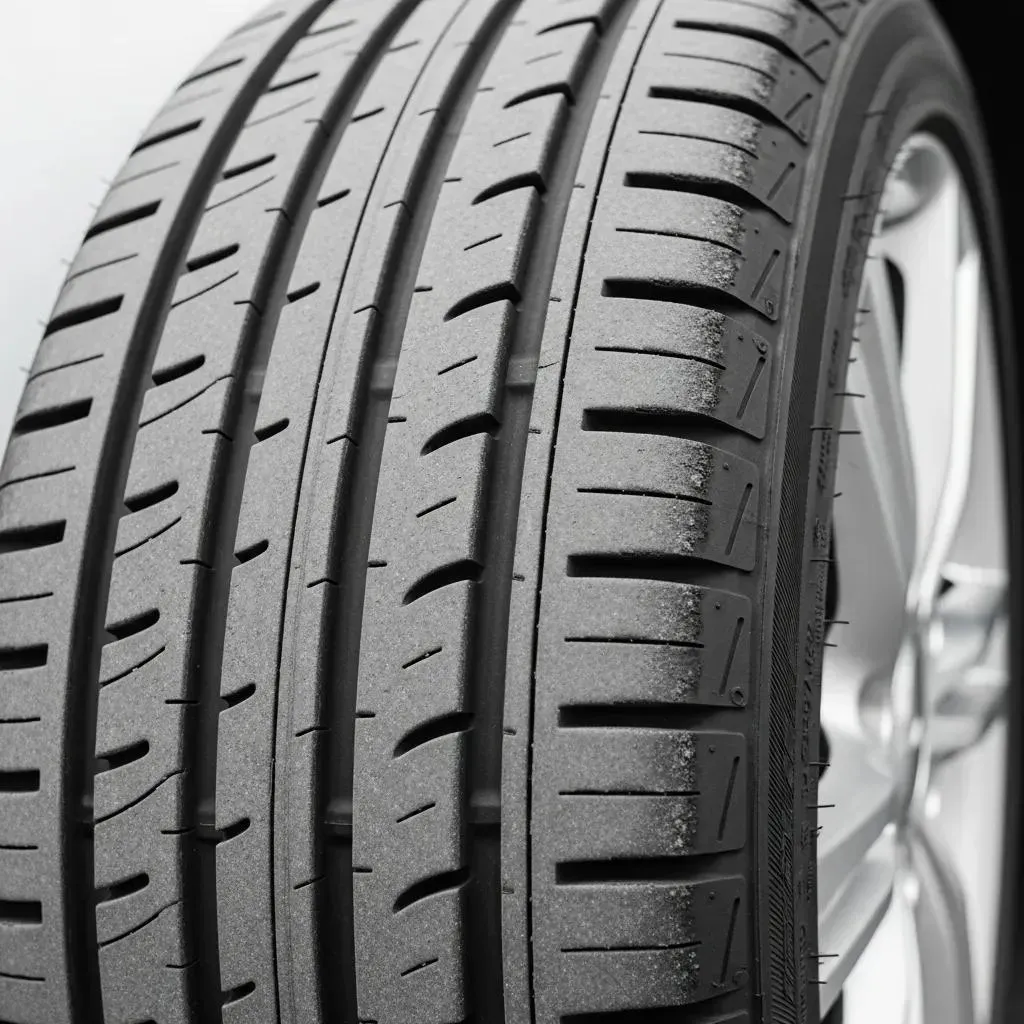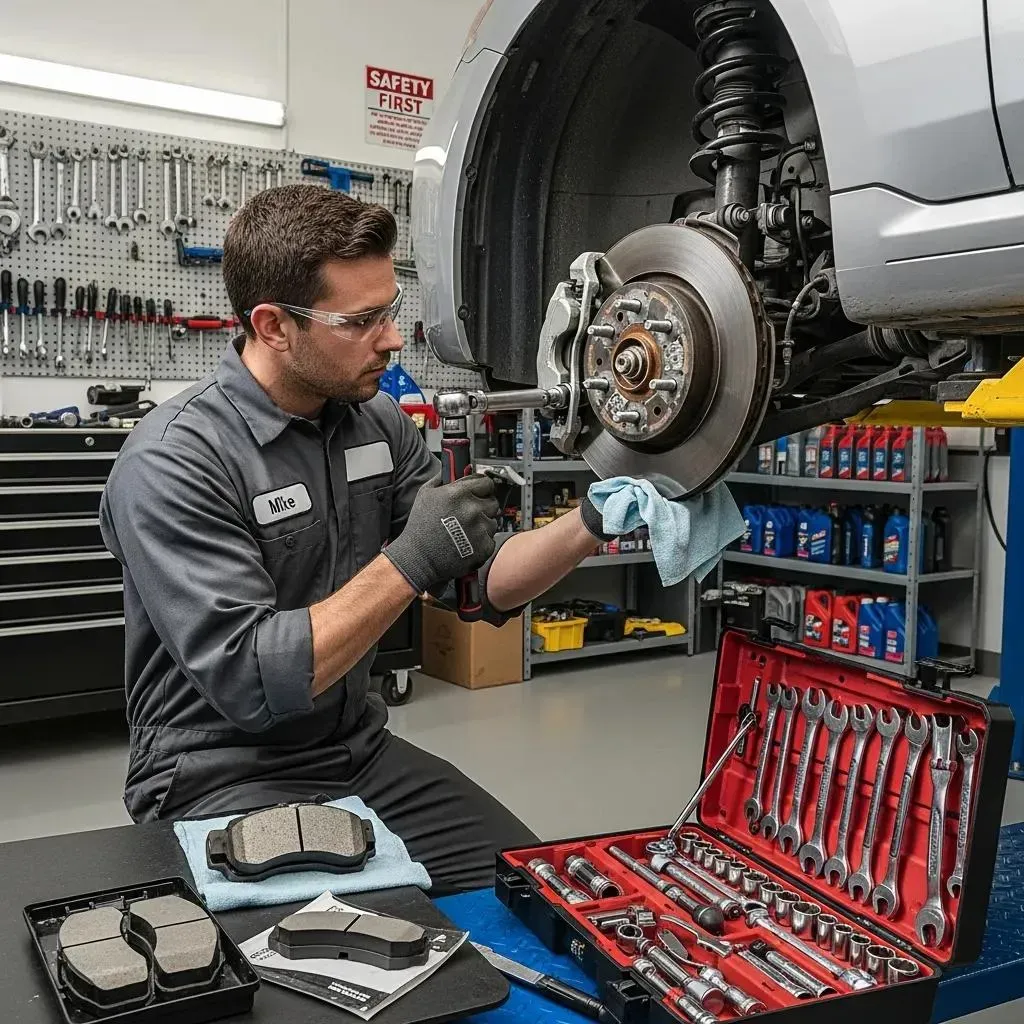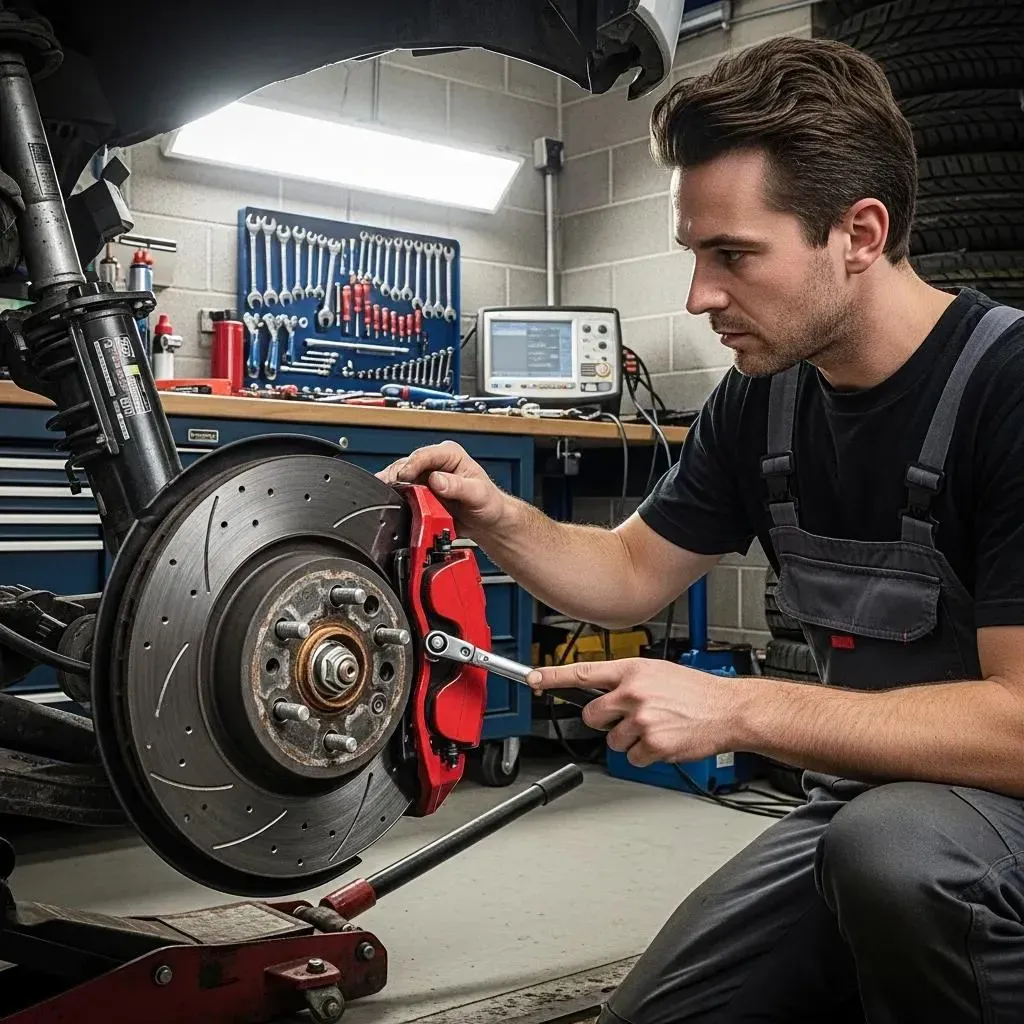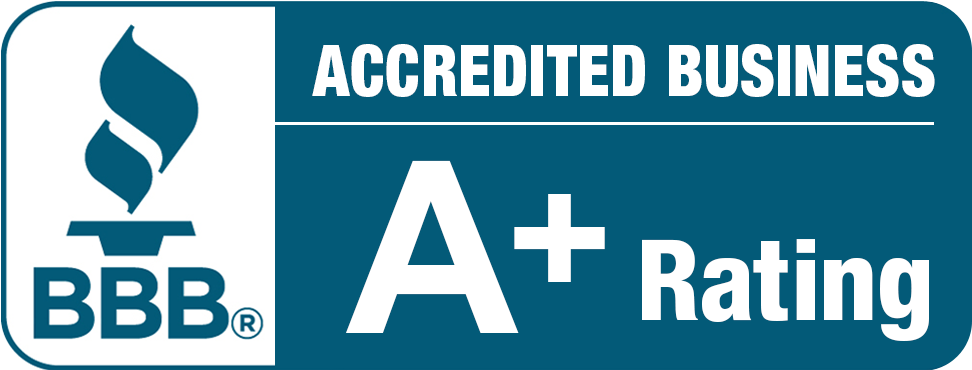By vivian
•
January 21, 2026
Knowing what a collision repair will cost helps you plan, and avoid surprises. This guide walks Charlotte drivers through the main factors that shape repair estimates, explains how Deluxe Paint & Body Works builds fair, accurate quotes, and shows how to handle insurance so repairs move smoothly. Read on to learn what affects pricing, typical price ranges for common fixes, and why local customers trust Deluxe with their vehicles. What Factors Influence Collision Repair Estimates in Charlotte NC? A few key elements determine a repair estimate: how badly the car is damaged, the parts required, labor time, and whether original (OEM) parts are used. Local market conditions and insurance considerations can also affect the final price. Understanding these pieces will help you compare estimates and choose a repair plan that fits your needs. Looking at broader economic trends can also explain why repair costs and insurance rates change over time. Lowering Auto Collision Repair & Insurance Costs Even with new repair technologies, collision repairs remain common and costs have risen faster than claim frequency has fallen. That gap is a major reason insurers and repair shops work to manage costs while keeping vehicles safe and serviceable. Designing for Insurability: Best Practices to Achieve Lower Vehicle Repair Costs, 2004 How Does Damage Severity Affect Repair Costs? The severity of the damage is the biggest cost driver. Small dents and minor paint damage are generally the least expensive to fix — often in the low hundreds. Major issues, like bent frames or structural damage, are much more costly because they need specialized tools, more labor, and sometimes expensive components. In short: the more complex the repair, the higher the estimate. Why Are OEM Parts Important for Accurate Estimates? OEM parts are made to match your vehicle's original specifications. They usually cost more upfront than aftermarket pieces, but they fit better, maintain safety and performance, and often include warranties. For many customers, using OEM parts reduces the chance of follow-up repairs and delivers a more reliable long-term result. How Does Deluxe Paint & Body Works Provide Affordable Collision Repair Estimates? At Deluxe, we combine hands-on inspection with clear pricing so you get a fair, affordable estimate. Our goal is to give transparent, itemized quotes that let you see exactly what you're paying for and why. What Is the Step-by-Step Estimate Process at Deluxe? Initial Assessment : We inspect your vehicle thoroughly to find visible and hidden damage. Detailed Breakdown of Costs : You receive an itemized estimate covering parts, labor, and any additional charges. Customer Review : We walk through the estimate with you, answer questions, and get your approval before work begins. This clear process helps customers feel confident the estimate reflects the real scope of work. Our estimating approach is grounded in a full understanding of the many tasks and skills that go into professional auto body repair. Understanding Auto Body Repair Processes & Mechanic Duties Occupational analyses break the trade into core duties, shop management, refinishing, panel replacement, frame repair, suspension and steering work, electrical systems, and more. Each duty requires specific tools, materials, and safety practices, plus knowledge in areas like measurements, materials science, and communications. That breadth is why experience matters when estimating and repairing collision damage. An Analysis of the Auto Body Repair Occupation., 1975 How Does Deluxe Ensure Transparency and Fair Pricing? We make pricing simple: every estimate lists parts, labor, and fees. We don’t spring hidden charges on you, and we explain any variables that could change the final cost. Clear communication is how we build trust and keep customers satisfied. How Can Charlotte Residents Navigate Insurance Claims for Collision Repair? Dealing with insurance can be stressful, but knowing the basics helps. Filing a claim, getting an estimate, and coordinating repairs are the main steps. Having an experienced shop that works with insurers can speed things up and reduce headaches. Changes in the insurance industry and rising repair costs for modern vehicles are part of why premiums and repair prices have shifted in recent years. Rising Auto Insurance Premiums & Repair Costs Recent shifts in the insurance market—driven by complex risk factors, pandemic-related inflation, and greater repair costs for advanced vehicle technology—have pushed insurers to adjust prices. Those trends help explain higher premiums and the upward pressure on repair expenses. Insurance sector navigating a significant price-risk adjustment, 2025 What Role Does Deluxe Play in Insurance Claim Assistance? We help customers navigate claims by offering direct billing to many insurers and advocating for fair repairs. That support keeps the process moving and lets you focus on getting your vehicle fixed, not on paperwork. Do Customers Have the Right to Choose Their Repair Shop? Yes, you can choose the shop that performs your repairs, even when an insurer suggests a provider. Picking a shop you trust ensures you get the quality and service you expect. What Are Typical Costs for Common Auto Body Repairs in Charlotte NC? Knowing typical price ranges helps you budget and compare estimates. Below are common services and their average costs. How Much Does Dent and Paint Repair Usually Cost? Minor dents and spot paint work often start around $150 and can go up depending on damage size and paint matching needs. Full-panel or multi-panel repainting pushes costs higher, which is why we give itemized estimates for clarity. What Are the Price Ranges for Frame and Structural Repairs? Frame and structural repairs are usually the priciest because of the equipment and expertise required. Estimates commonly fall between $1,500 and $5,000, depending on the extent of the damage and replacement parts needed. Service TypeAverage CostFactors Affecting CostDent Repair$150 - $1,500Severity of damage, paint typeFrame Repair$1,500 - $5,000Complexity, parts neededPaint Repair$150 - $1,500Area of damage, paint quality Use these ranges as a starting point — the exact cost depends on your vehicle, the damage, and the repair method recommended by the technician. Why Should Charlotte Drivers Trust Deluxe Paint & Body Works for Collision Repair? Deluxe Paint & Body Works is a local shop known for dependable repairs and honest service. We treat vehicles like our own, and we stand behind our work so customers leave confident their car is safe and well-repaired. Expert Care : Our technicians bring years of collision-repair experience to every job. Precision Craftsmanship : We focus on fit, finish, and safe repairs — down to the smallest detail. Personalized Service : We communicate clearly and tailor repairs to each customer's needs. How Do Customer Testimonials Reflect Deluxe’s Quality and Service? Customers often praise our clear estimates, professional staff, and timely repairs. Those comments reflect the day-to-day care we put into each vehicle and the straightforward service we aim to provide. Where Can Charlotte Residents Get a Free Collision Repair Estimate Today? Getting a free estimate is simple. You can request one online or bring your vehicle in for a hands-on inspection — either way, we’ll give you an honest, itemized quote. How to Request an Online or In-Person Estimate from Deluxe? Charlotte residents can request a free estimate from Deluxe Paint & Body Works online or visit us in person. Our online form is quick to complete and we typically respond promptly. If you prefer an in-person review, stop by at 2544 Lucena Street, Charlotte, NC 28206 for a direct assessment. What Are the Benefits of Getting a Free Estimate Early? Cost Savings: Early estimates let you plan and avoid surprise expenses. Faster Repair Process: Quick assessments help get repairs started sooner. Informed Decisions: Knowing likely costs helps you choose the best repair path. Taking advantage of a free estimate helps you prepare for repairs and keeps the process moving smoothly. Frequently Asked Questions What Should I Do Immediately After a Collision? First, make sure everyone is safe and call emergency services if needed. Move to a safe spot if the vehicle is drivable. Take photos of the scene and damage, exchange insurance and contact information with other drivers, and report the incident to your insurer. These steps make filing a claim and getting an accurate repair estimate much easier. How Can I Ensure Quality Repairs at a Collision Shop? Check reviews and ask about certifications and experience. Confirm whether the shop uses OEM parts when appropriate and ask about warranties on both parts and labor. A transparent shop that explains the work and stands behind it is usually a good choice. Are There Any Hidden Fees in Collision Repair Estimates? Reputable shops aim to avoid hidden fees, but it’s smart to ask for a detailed, itemized estimate that lists parts, labor, and any likely additional charges. Ask how the shop handles unexpected discoveries during repairs so you won’t be surprised by the final bill. What Should I Look for in a Collision Repair Warranty? Look for a warranty that covers both parts and labor and lasts at least a year. Ask if the warranty is transferable if you sell the vehicle and read the terms so you understand what is and isn’t covered. How Can I Prepare My Vehicle for Repair? Remove personal items, disable alarms if applicable, and clean the vehicle so technicians can accurately assess damage. Bring any insurance paperwork and previous repair records to speed up the process. What Are the Benefits of Choosing a Local Collision Repair Shop? Local shops offer personalized service and community-based reputation — they want satisfied customers nearby. They often understand local insurance processes and can provide quicker, more convenient service than distant chains. Understanding what affects collision repair estimates helps you make smarter choices after an accident. Deluxe Paint & Body Works offers clear, fair estimates, experienced technicians, and friendly service to help Charlotte drivers get back on the road with confidence. Start with a free estimate so you can plan your next steps with no surprises.









